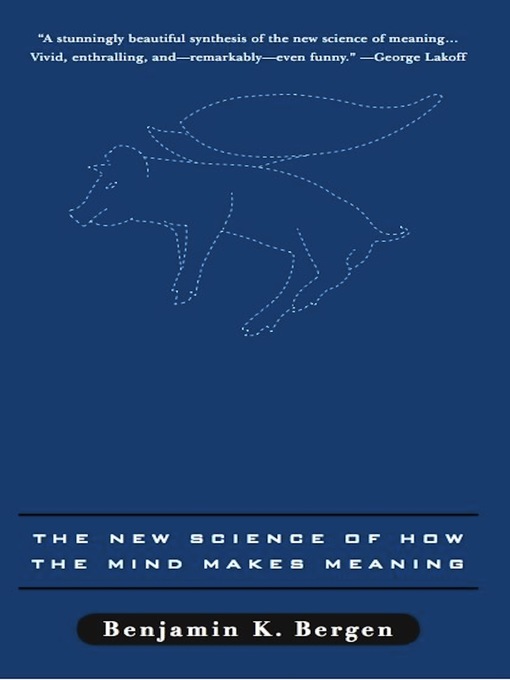
Louder Than Words
The New Science of How the Mind Makes Meaning
کتاب های مرتبط
- اطلاعات
- نقد و بررسی
- دیدگاه کاربران
نقد و بررسی

September 3, 2012
This is a breezy exploration of a theory of meaning, positing that we understand language by simulating in our minds the experiences that are being described to us. This theory of “embodied simulation” is both systematic and speculative in its approach. Bergen, director of the Language and Cognition Lab at UC–San Diego, focuses primarily on two types of studies from the last decade. Studies that compare fMRI imaging during visual, motor, and linguistic tasks reveal similar brain activity when subjects perceive objects as when they imagine them; similar results are found in comparing subjects’ mental rehearsal of motor activity, such as bowling a strike, and their understanding of language about that activity. Studies give hints of what the internal representation of the verbal cue (e.g., “The Ranger saw the eagle in the nest”) looks like. Bergen’s clarity in specifying where his ideas are supported by current research and where they are still unproven flights of fancy, his coverage of many studies with small variations between them, and his pointers toward the next directions for research make this book a good resource for students interested in the design and analysis of experiments, especially those with human subjects. Illus. Agent: Katinka Matson, Brockman Inc.

September 15, 2012
How we extract meaning from language. Our ability to use language is unique, suggests Bergen (Cognitive Science/Univ. of California, San Diego). Bird song may rival the tunes we sing in "speed and complexity," and primates can learn a simple human vocabulary, but human speech is open-ended. We effortlessly extract meaning from verbal descriptions of nonexistent things such as "Martian anthropologists or vegetarian zombies" and discuss abstractions such as the meaning of meaning. The author describes research corroborating the "embodied simulation hypothesis," the idea that understanding spoken or written language depends on our ability to imaginatively reconstruct mental images from the words we hear or see. In order to understand the meaning behind words, we use the same mental tools that allow us to react to our environment, reconstruct memories, plan future actions or imagine situations. Bergen gives the example of professional athletes who use visualization to hone their skills and compares this to the visualization necessary to understand language. Clever laboratory experiments show how recognition speed varies when seeing a picture of an object such as an egg and hearing a description of its use. Brain scans show the activation of different neural pathways when we hear a noun or verbal description. Similarly, Bergen shows that the use of metaphor and idiom to express abstractions also depends on visualization and the language of embodiment, from descriptive language such as "swallowing pride" and "grasping meaning" to idiomatic expressions like "you see what I mean" or "let's shine some light on the topic." An intriguing look at the brain mechanisms involved in the complexities of human communication.
COPYRIGHT(2012) Kirkus Reviews, ALL RIGHTS RESERVED.

























دیدگاه کاربران